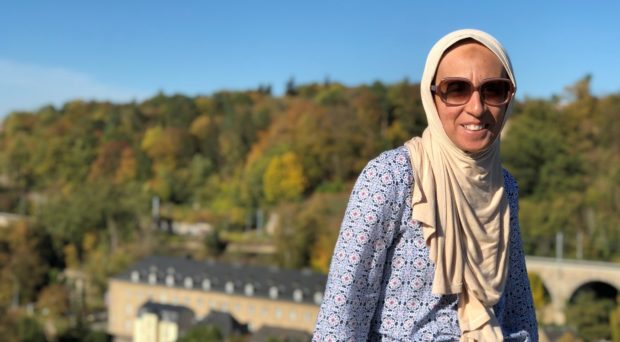
Welcome to our Meet the SDG3 researcher blog collection. We are interviewing a series of academics and practitioners working in diverse fields to achieve Sustainable Development Goal 3: Ensure healthy lives and promote well-being for all at all ages. You can find other posts in this collection here, and discover what else Springer Nature is doing to advance progress towards achieving this goal on our dedicated SDG3 hub.
Please tell us a bit about yourself.
I am a pharmacist by training. I graduated in 2003 from the Faculty of Pharmacy, Alexandria University where I proceeded to study for my Master’s while working as a teaching assistant at Alexu. I studied the antimicrobial potential of some pharmaceutical excipients and found that Pemulen®, a viscosity imparting polymer, had an antibiofilm potential – a finding that also inspired my PhD work. As a pharmacist with a special interest in Microbiology, I found antimicrobial resistance, particularly in developing countries, a challenge I wanted to tackle. In my PhD years (2007-2010), I focused on the factors affecting biofilm formation among Gram positive and Gram negative bacterial isolates from Egypt.
My work stressed the increased antimicrobial resistance among older biofilms and the potential of some antimicrobial agents, when misused at concentrations insufficient to kill them, to promote biofilm formation – an observation that led me years afterwards to focus on antimicrobial stewardship awareness promotion.
At this point in my career, a chance encounter in late 2010 with a researcher from Armenia while coming home from a family vacation when we were both waiting for our return flights introduced me to Fulbright fellowships. She recounted her experience as a Fulbrighter and how it had impacted her life and career. I was very much impressed and returned home to check the Fulbright programs and plan for the right one. I never stayed in touch with the Armenian researcher but I would like to take the chance to thank her and to wish her the best wherever in the world she is now.
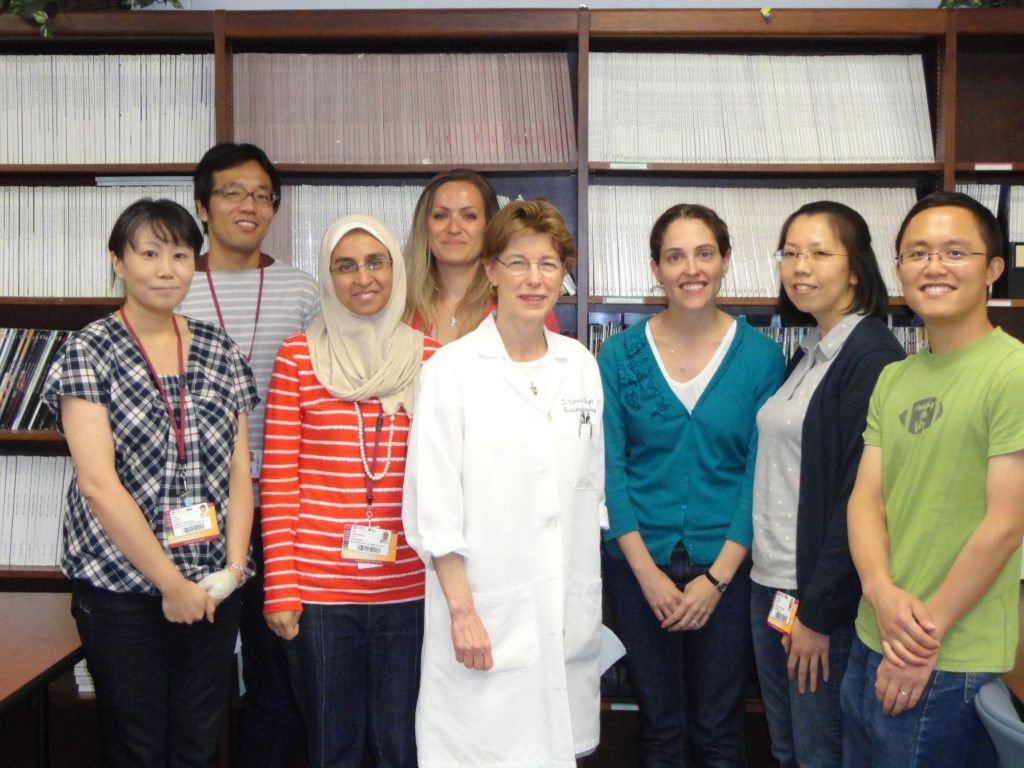
The nine months I spent at the lab of Prof. Dr. Alan Wolfe at Loyola University Chicago during my Fulbright fellowship and a subsequent one-year placement as a postdoctoral fellow at the lab of Dr. Christopher Kristich at the Medical College of Wisconsin deepened my understanding of molecular biology and genetic engineering techniques.
Upon my return home in 2014 as an Assistant Professor of Microbiology and Immunology at my alma mater, I was ready for a change of focus. I wanted to use my newly acquired experience and background to understand the mechanisms of resistance and study the genotypes of antimicrobial resistant clinical isolates from Egypt since these were largely unknown at the time. We were aware in the pharmaceutical and medical fields of the high levels of resistance, yet these levels were not fully documented nor the mechanisms of resistance among the Egyptian isolates properly explained. The knowledge gap was a serious setback to most infection control and antimicrobial stewardship plans.
To fill this gap, I became involved in a number of research projects in staphylococcus as a model gram positive pathogen and Acinetobacter baumannii and Pseudomonas aeruginosa as gram negative examples. One of my early Master’s students, Marwa Naguib, reported the prevalence of fusidic acid resistance among isolates from Alexandria, Egypt that were also methicillin resistant and we found a role for plasmid mediated fusB and fusC genes in mediating resistance in these isolates.
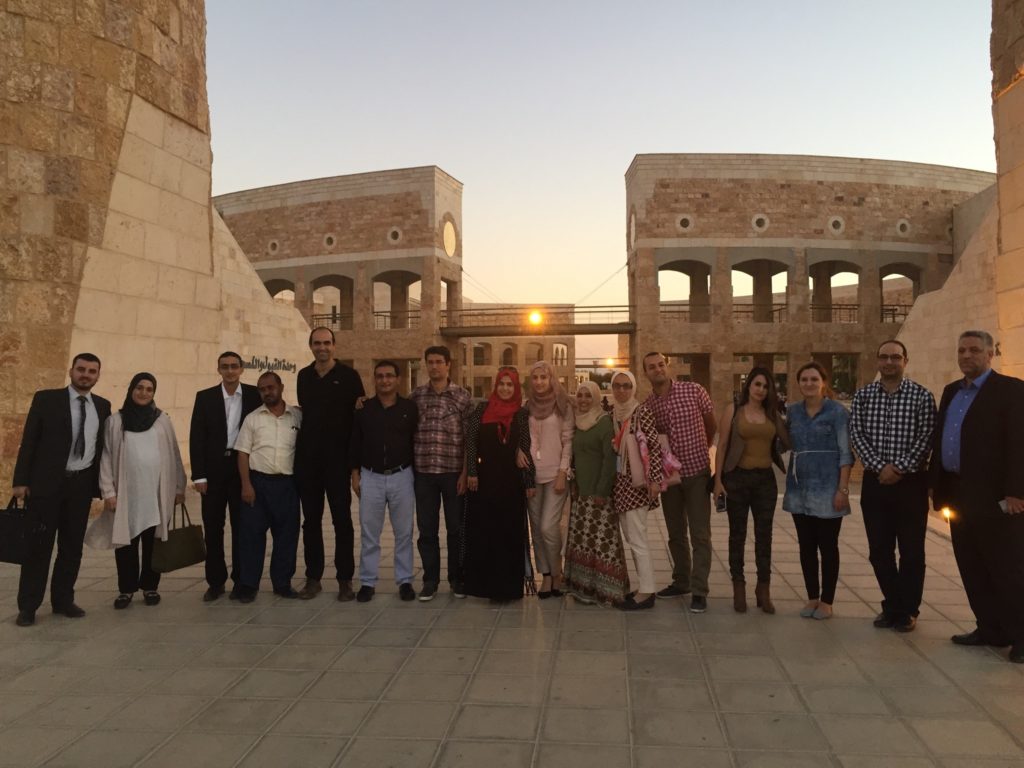
How does your work relate to SDG3?
Antimicrobial resistance is by far a very pressing research question, especially in low resource settings as it affects our ability to treat infections that otherwise would be curable. In Egypt, many patients rely on self-medication or the advice of friends and neighbors in prescribing antibiotics. This coupled with the fact that antibiotics are available on the counter without the need for a prescription has resulted in antibiotic abuse that has driven the levels of antibiotic resistance to above average. This touches on the core role of pharmacists in the community. In addition to our lab work, my students and myself organized awareness campaigns for the general public in Alexandria to warn of the risks of antibiotic misuse which resonate with SDG 3.3, SDG 3.b and SDG 3.d.
In the last two decades, research has come a long way in Egypt from the days when most researchers were self-funded. In line with SDG 3.c, nowadays, principal investigators can apply for research funding on a competitive basis and through several funding mechanisms. This certainly improved the quality of research and took the edge off of young researchers who can focus on their studies rather than worrying about how to finance their work.
Any highlights from your projects and research collaborations?
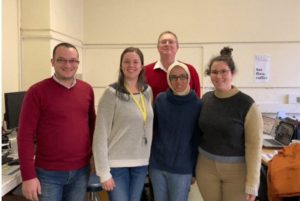
In 2015, I partnered with Prof. Andrew Whitelaw at Tygerberg Hospital, Stellenbosch University, South Africa to describe the spa, SCCmec and MLST types of MRSA isolates from Alexandria and the effect of genotype on resistance to moxifloxacin. For that project, we received funding from the Egyptian STDF (Science and Technology Development Fund, currently Science, Technology and Innovation Funding Authority), the Egyptian Ministry of Higher Education and the South African National Research Foundation. The project also supported the graduation of my first PhD student, Mustafa Alseqely.
Other projects soon followed and we expanded our collaboration network to include PD. Dr. Wilma Ziebuhr at Wuerzburg University and Prof. Revathi Gunturu from Agha Khan University, Kenya. We have obtained funding from DFG (German Research Foundation) and we are using a genomic approach to study resistance to several last resort agents in Staphylococcus aureus and coagulase negative staphylococci. This project supported the graduation of my Master’s student, Lina Maarouf, and the work of my current student, Aisha Hamdy.

My team is also collaborating with Dr. Benjamin Evans at the University of East Anglia on a project that was funded by the Newton-Mosharafa Fund to use genomics for typing of carbapenem resistant A. baumannii and Pseudomonas aeruginosa and the elucidation of antimicrobial resistance in these isolates (more works can be found here and here).
In 2017, I started a fellowship from the Fogarty International Center JORDAN Program to study responsible conduct of research. Ever since, I have become interested in ethics in clinical practice and research. In that respect, I attended and organized workshops to raise awareness on the most important aspects of responsible conduct of research among Egyptian researchers.
I have been an Associate Editor for Antimicrobial Resistance and Infection Control for over two years now. This role, together with occasionally serving as a reviewer for scientific journals, made me appreciate the great effort that goes behind the scenes by editors and reviewers to make our findings accessible to readers in the scientific community and beyond.
Please tell us about a resource or person that has particularly inspired you.
My mom has always been my role model. She is a Professor of Pharmacology at the Faculty of Pharmacy, Alexu and throughout my formative years, research has been an important fixture in our lives. As an elementary school student, my first complete sentence for my French class was “Maman travaille sur les grenouilles” which translates to “my mother works on frogs” – so much was I impressed with my mother’s research on frogs to study the pharmacological action of the different drugs. In addition to research, mom instilled in my brother and myself the values of hard work and perseverance. I owe her my attitude for never giving up. This is a very handy trait when applying for research funding. Thank you, Mom!
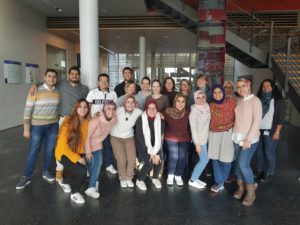
I was also inspired by Prof. Dr. Alan Wolfe who was my mentor during my Fulbright placement at Loyola University Chicago. From him, I learned the value of international collaboration and multidisciplinary work. Other people who affected my work and life include my Master’s and PhD advisors: Prof. Dr. Hamida Abou-Shleib, who always amazed me with her diplomacy in science and in life and Prof. Dr. Amal Khalil who always had a nice word for everyone.
Because I greatly value the role my mentors have played in my life and professional development, I like to return the favor and be there for my students. I advise them on workshops to attend and organize some such workshops and exchange programs for them. Throughout it all, I try to infuse them with confidence in their role as pharmacists and what good they can achieve in the community. It gives me great pleasure to see them presenting these positive experiences in scientific meetings.
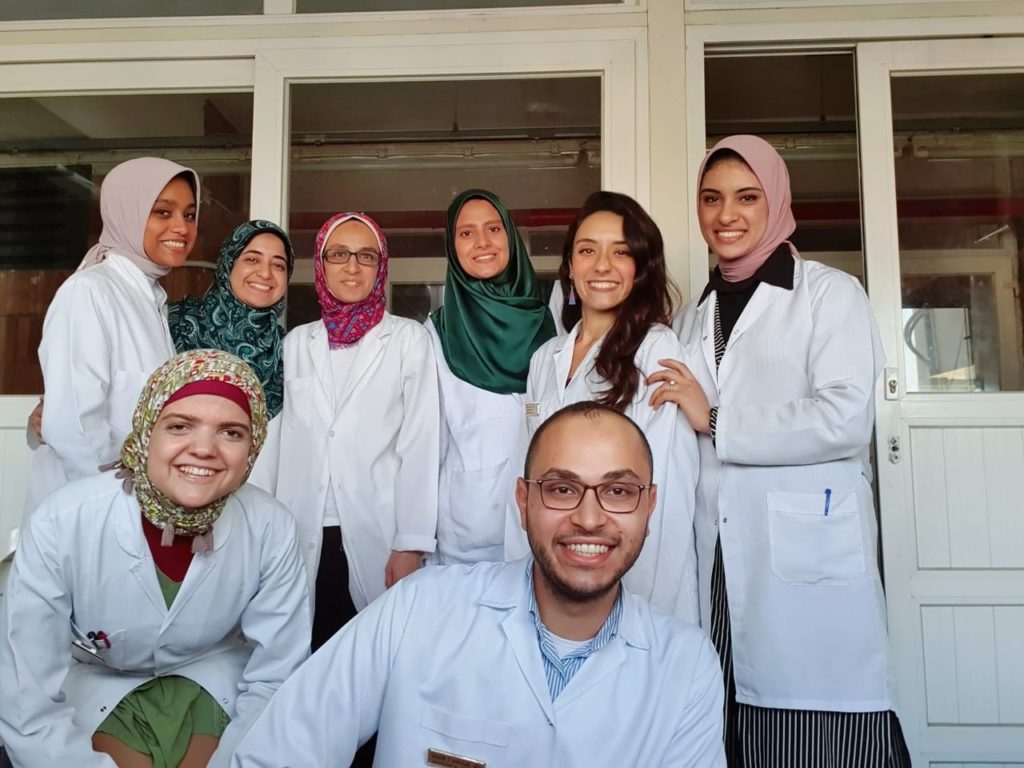
You can find other posts in this collection here.
At Springer Nature we are committed to playing our role in advancing progress towards achieving SDG3 by both supporting researchers and being an active voice, promoting an interdisciplinary evidenced-based approach to all targets and indicators within this goal. Learn more about our SDG3 activities and the Springer Nature SDG Programme.
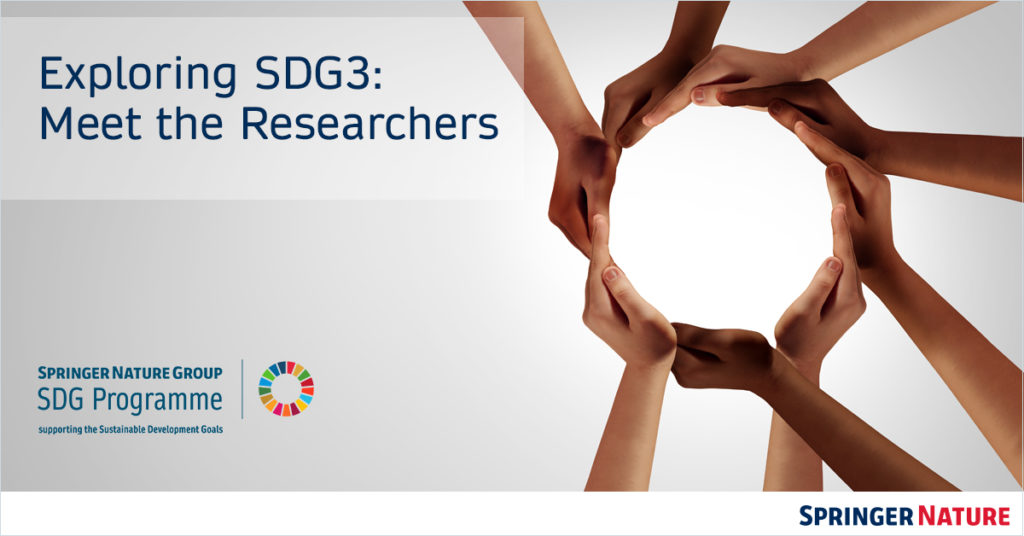
Comments